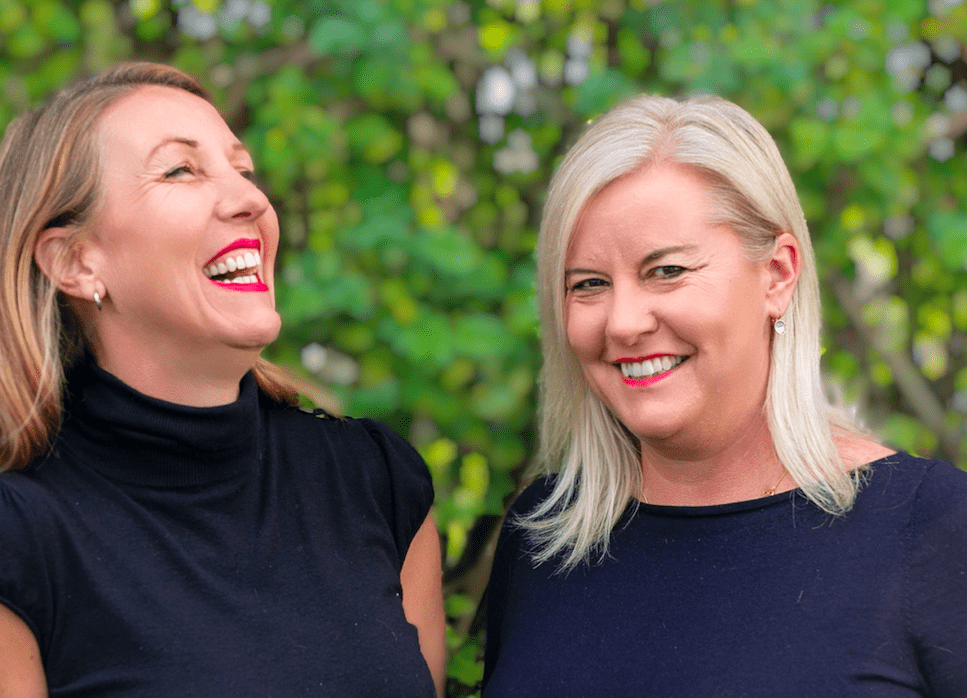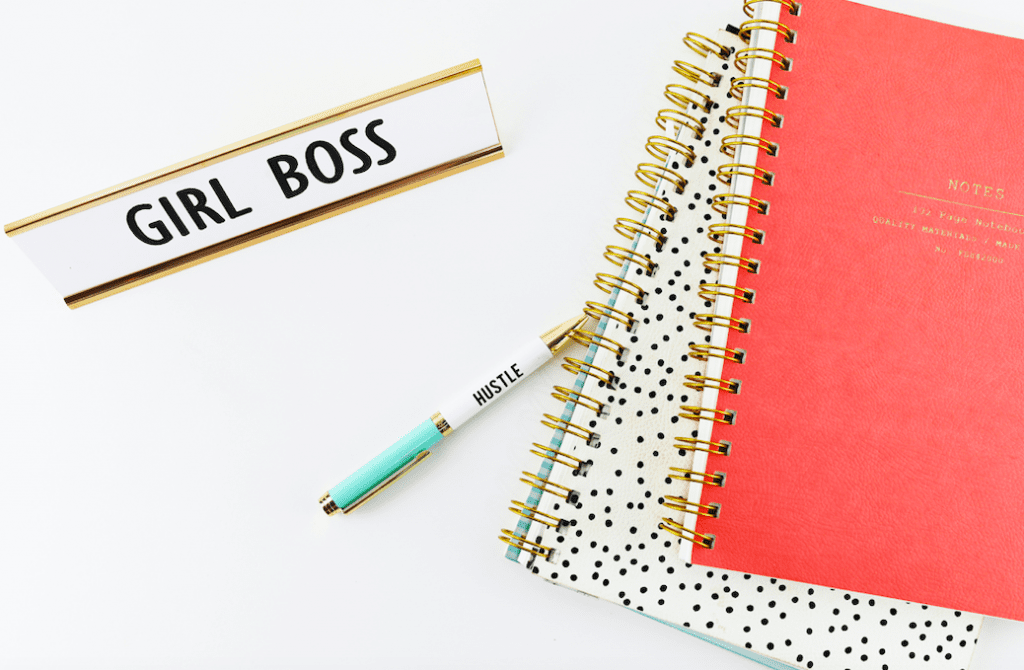If you haven’t experienced any disruption in your career during this past year, consider yourself among the lucky few.
But even if you haven’t been affected by the pandemic directly, the disruptions of 2020 have left a lot of us reassessing and re-evaluating what’s important and what’s actually needed in our professional lives.
Do we really need to stick to the nine to five? What about flexible working? Do we even need offices anymore?
All of this change has left a lot of Kiwi women searching for something more, so we decided to chat to Melissa Jenner and Vic Jack, founders of new career planning and activation service Actualise, about the future of work, understanding your worth and when to take the plunge and try something new.
Capsule: A lot of people are doing some serious re-evaluating at the moment, brought on by changing circumstances and the effects of Covid-19 – for example, I have a mate who’s been in sales her whole career, but knows it’s not her ‘why’ or her passion. How can women feeling like they’re a bit stuck, or they’re on the wrong path, figure out what the next step is?
Melissa: People do get stuck. We’re also naturally very good problem solvers, but when it comes to solving us, it’s really hard. It’s like an artist who can’t see how great their work is, and they need someone to show them and guide them.
What we do is that we can see in people things they can’t see, and reveal some insights into what makes them tick.
M: We’re two women who have come from very different backgrounds, Vic’s a mum, I’ve worked all over the world. We were talking, and we both thought that all of this seems to be harder for women. We’re not a feminist agency, we serve everyone and we’re very much into diversity, but we do understand how the struggle is different for women. And funnily enough women find us, even though we don’t target them. I think it’s an 80/20 split!

Why is taking control of our careers harder for women to do in the first place?
M: I think it’s two things, women perhaps don’t reach out for help as much as men do, but men also live in a world of bravado that gets them through things. They’re the ones who put themselves forward for a job they’ve never done before. Whereas a woman will say, ‘Oh, I’m not sure that’s the right thing for me…”
Oh yes – there’s that meme that goes around from time to time that says if a man sees a job ad and can only do one out of the 20 skills listed, they’ll apply and figure they can learn it. Whereas women will be able to do 19 out of the 20 and not apply, because they don’t know how to do the one thing.
Vic: That’s exactly right. One of the women who have come through the process with Actualise is a general manager. I was saying to her that she should think about something a little different, and she says, ‘Oh, funnily enough I saw a job as a programme leader the other day, but the problem is, when I looked at the key responsibilities of the role, there’s a few things I don’t have a lot of experience in.’
I went, ‘Don’t worry about it!’ If you were a guy you’d always have applied for it. Fake it ‘til you make it! And you get it, and you work it out. Most of these things are taught on the job anyway – but it’s having the confidence to present yourself well, and that’s where we help.
M: Actually, a funny story with me – I got as job as a head of marketing and I’d never been a marketing director before. I blagged my way into it and I suddenly freaked out. I had accepted the job, and I literally had to Google ‘what does a head of marketing do’ and I 100% freaked myself out.
But I was kind of trained to think like a man, and I saw this kind of thing happening all the time. What it taught me, and this is something I hold onto, is that every time you do something for the first time, it’s the first time you do something. People forget that, right? You just have to back yourself and be brave, and have a learning mindset. The one thing that will hold people back, in our experience, is not having a learning mindset.
Have you had any examples people rather drastically changing course?
M: Yeah, I had a lawyer – this is one of those classic post-millennial story, she was in her early 30’s and she was on the path to becoming a partner in a law firm. She could see that escalator in front of her and it turned her off and she realised that it did not reward her personally. She’s actually now set up a personal growth coaching business.
V: And another woman came to us, and she was working as a low-level administrator earning $35,000 a year working at her and her husband’s business. She came to us and said she was an administrator and that she needed to figure out how to get paid more, and what more she might be able to do. I said ok, let’s figure it out. What I discovered was that she wasn’t an administrator at all, that’s just what her husband called her for 15 years. She was the COO for that company. She was the GM. She ran finances, compliance, health and safety, she hired people. When I showed her that she was actually a COO and GM, she moved from being paid $35,000 a year out of the family business to $70,000. She couldn’t see her capabilities, and she had been packaged up and been taught to believe she was something less than she actually was.
That doesn’t shock me at all, especially considering that statistic that was released the other week, that out of the 11,000 people who lost their jobs during the pandemic, 10,000 of them were women.
V: Those 10,000 women who were laid off – I bet their organisations didn’t know what they were capable of. I bet they viewed them as, oh, she’s just an accounts executive, for example. She’s just a whatever. But a lot of these women have got multiple skill sets and multiple talents, and they could have been so valuable.
M: And companies could use these tools too. You need to understand what your employees can do and use them to their full potential. Because let’s face it, it costs a lot of money to replace people within an organisation. The average cost of losing an employee is $50,000.


It would be fair to say, it’s more likely women who are more risk adverse, right – maybe we need to get better saying ‘I can do those other things?’
M: People have been conditioned. It’s the whole system, the system of hiring someone in and making them believe they need to fulfil that role profile, instead of operating like a start-up, where people don’t have defined roles. Everyone who joins a start-up treats it like it’s their own company, and they do multiple roles and things, and their true potential is discovered and revealed. But when you’re hired to do a specific job, you get boxed into a corner. Companies need to evolve and change, otherwise people will leave.
Are there any trends at the moment when it comes to what people want out of their careers?
M: Yes – people are questioning things a lot more. Whether the way they’ve been conditioned to work is the way they want to continue, like with corporate life, offices, the 9-5, etc, we’re all re-evaluating. I think people are getting more creative, but it’s also producing anxiety because as soon as you’re start questioning the status quo and what’s kept you safe, there’s a real fear factor in giving up your security.
There’s a lot of excitement about working differently but there’s also a lot of fear. And then I’d say is that there are a lot of people who are out of work, and that’s fearful.
V: And there’s a lot of opportunity here, if we reframe this from fear and anxiety to hope and opportunity. I think most of all, people want to feel valued and appreciated. They want to know that they’re valued within their organisation – they want to feel very aligned with what is going on within an organisation. And that’s what Covid has taught us. Now when they’re looking for a new opportunity, or they’re designing their own career or business, that’s a core part of what they’re looking for.
A lot of people – including us, have used this opportunity to start a new business, or turn a side hustle into a full-time career. Do you reckon this is a good time to take a risk and give things a go?
M: One thing I always say is that you shouldn’t leave your job unless you have to. I would say stay where you are – but if you’re unhappy, start planning your exit. People should value security in times like this, but that’s not at the expense of mental health. I’ve worked with people with burnout, if your mental health is affected you should leave.
I’m hearing a lot in the media that this is a bad time to start a new business – I’d absolutely refute that. It’s the perfect time, because people’s mindsets are shifting. There’s never been a time in history like this , where people are questioning their values and how they’re living. So, if you want to start the business, if you can do it in a safe way, do it. There’s so much opportunity because people are changing their lives.
V: Equally there’s a lot of people who don’t know they’re unemployed yet. Now is the best time to start thinking what you can do next. Don’t rest on your laurels, don’t feel like you are completely safe. Think how you can reinvent yourself. Don’t throw in a job – but think about what next.


So how do you help people figure that out?
M: Number one – it’s about discovering insights about yourself. We put people through an online discovery planner, there’s all sorts of things in there like a values test, a personality test and they spend about an hour or two doing all the thinking about the stuff they need to know in order to make good decisions.
When you’re trying to change course, all of this stuff is swirling around in your head – ‘should I do this, what about that, can I even do that’ – you get caught up in your own head. Helps you unpack everything into a structured format, so you get a report on who you are, what you need, what you’ve got and what you’re trying to get done. It’s the brief – for us, we know the person is, where they’re going, where they’ve come from and what their values are.
M: Two is a consult and at the end of that call, we pride ourselves on being able to give that person three different pathways or directions they could go in, with a range of risk attached. We give them something really safe and really close to what they’re doing, we give them a pivot option, and then we try to give them a wildcard, high-risk option. That’s often the one that catalyses their choices. Then thirdly, we hold them accountable with 30 minute activation sessions, we check in with them regularly.
V: The difference of what we do and how others have approached this in the past, is that a lot of times you can go and do these things online, but there’s no real intrinsic value in that. We’re helping you to uncover things, but we’re also holding you accountable – it’s really, really important.

